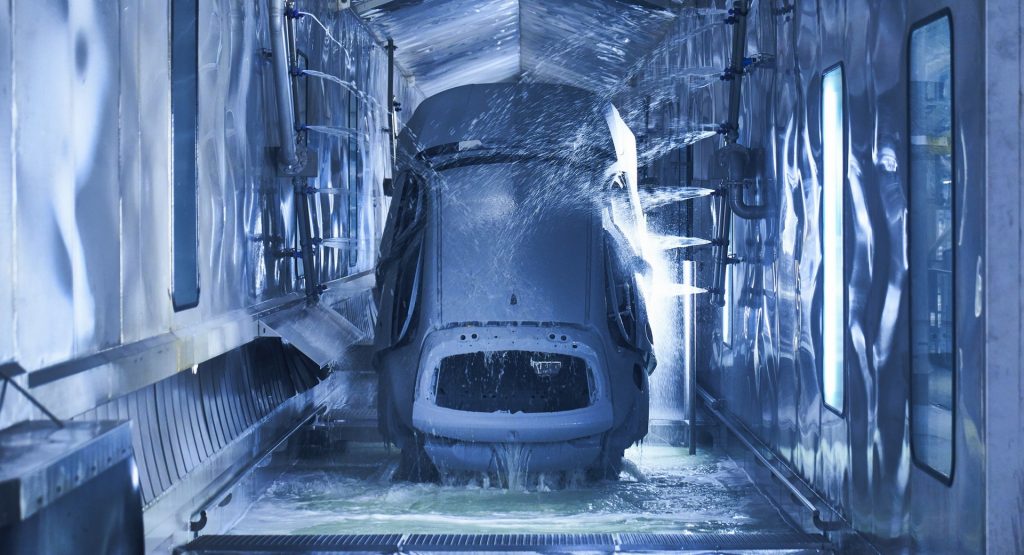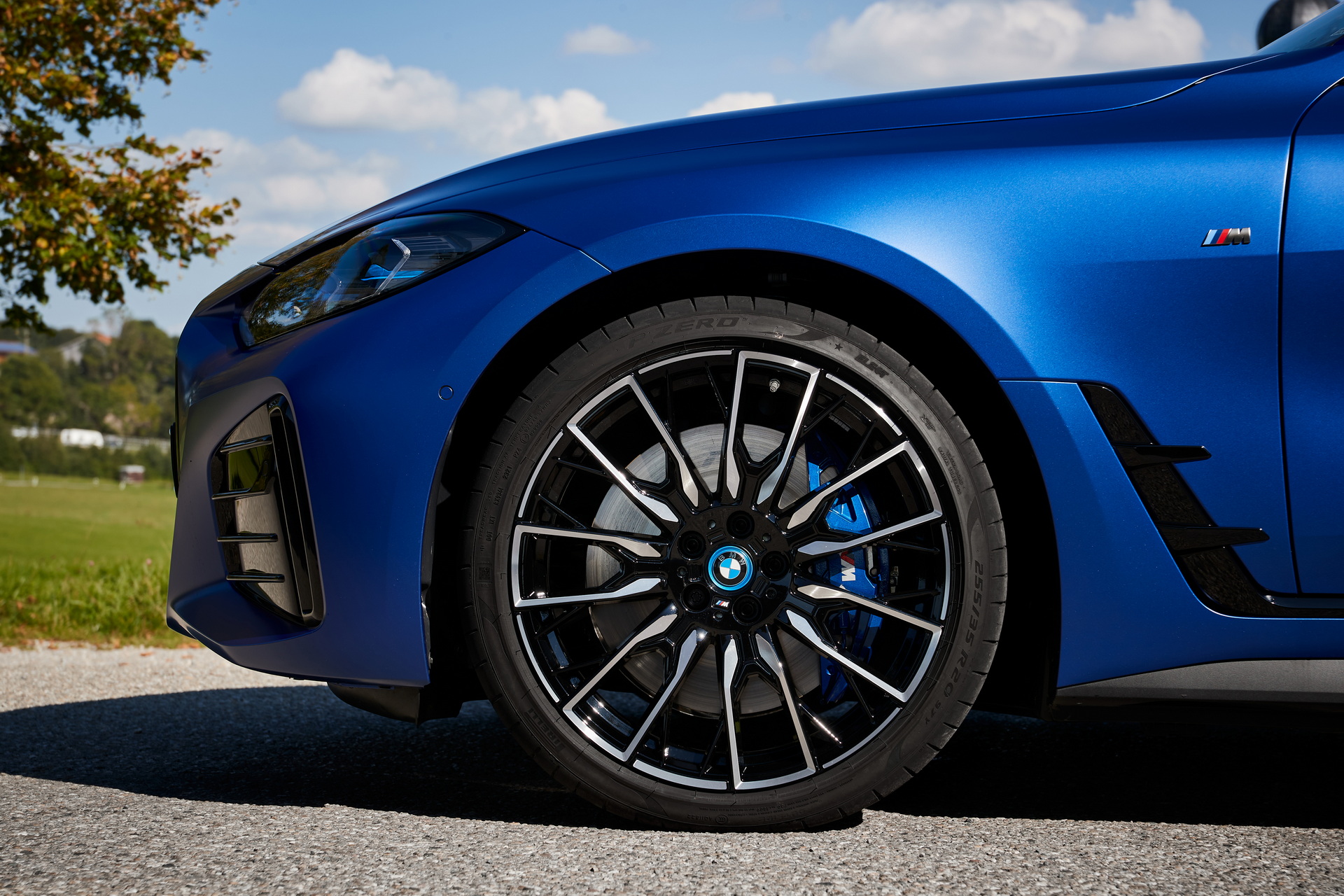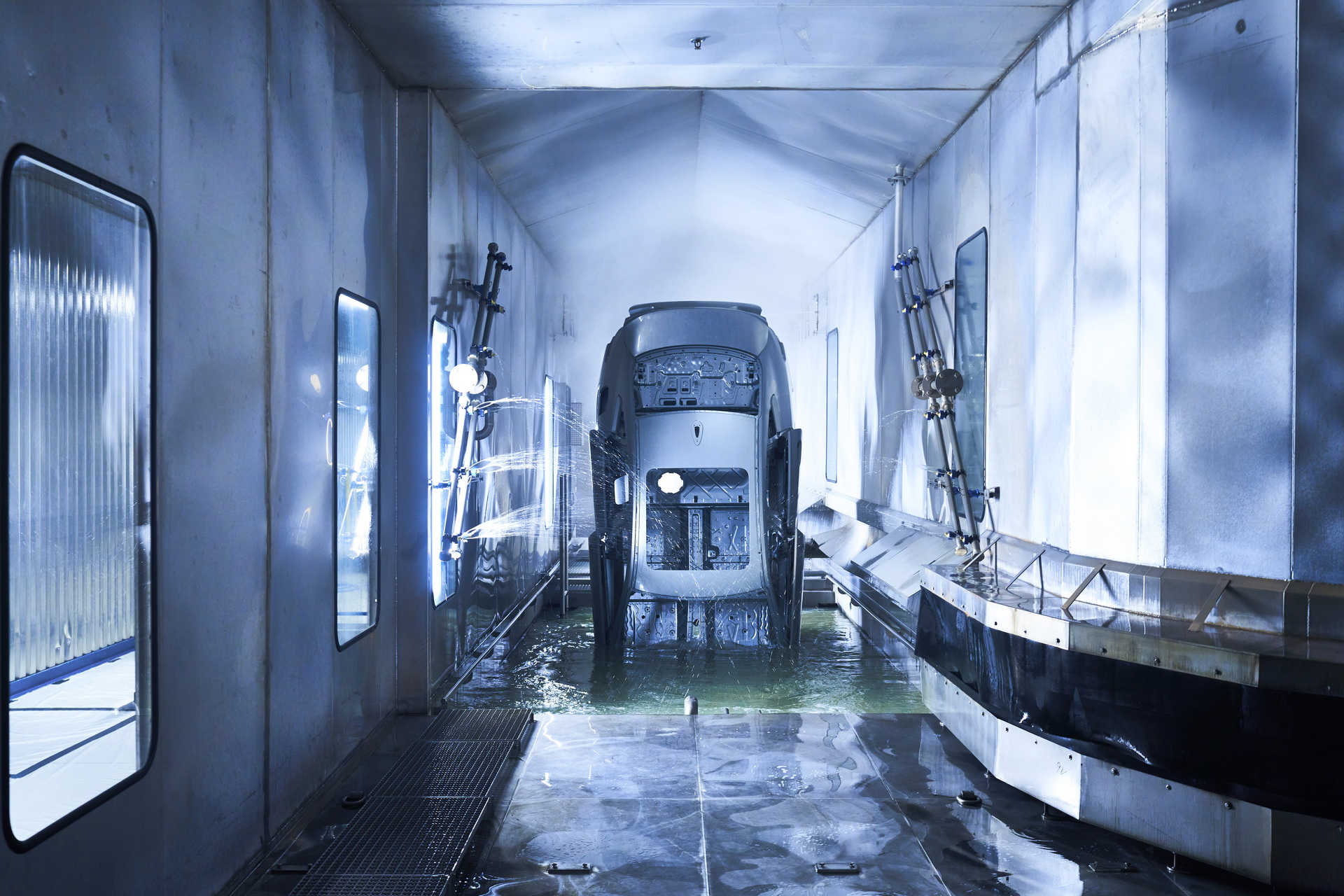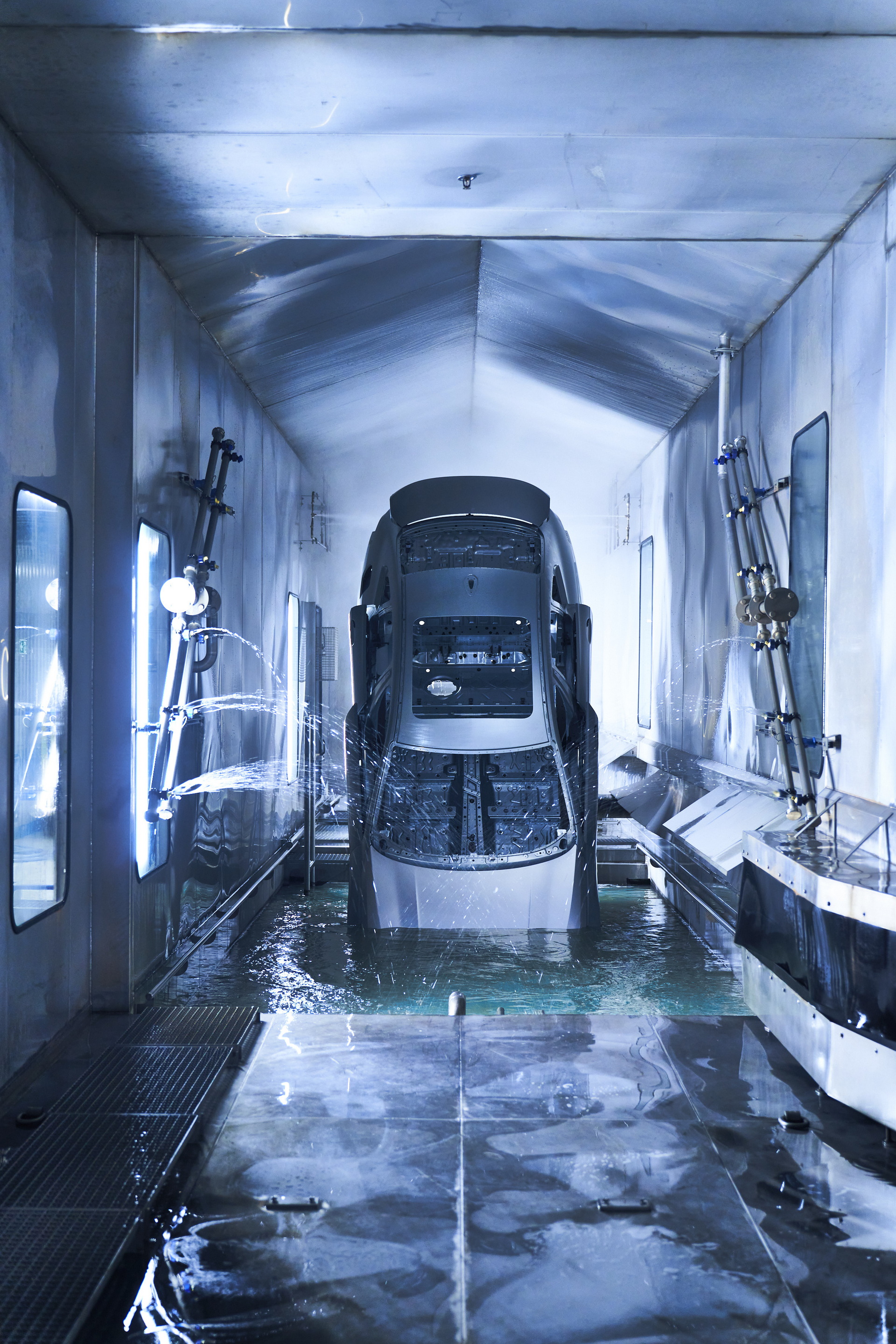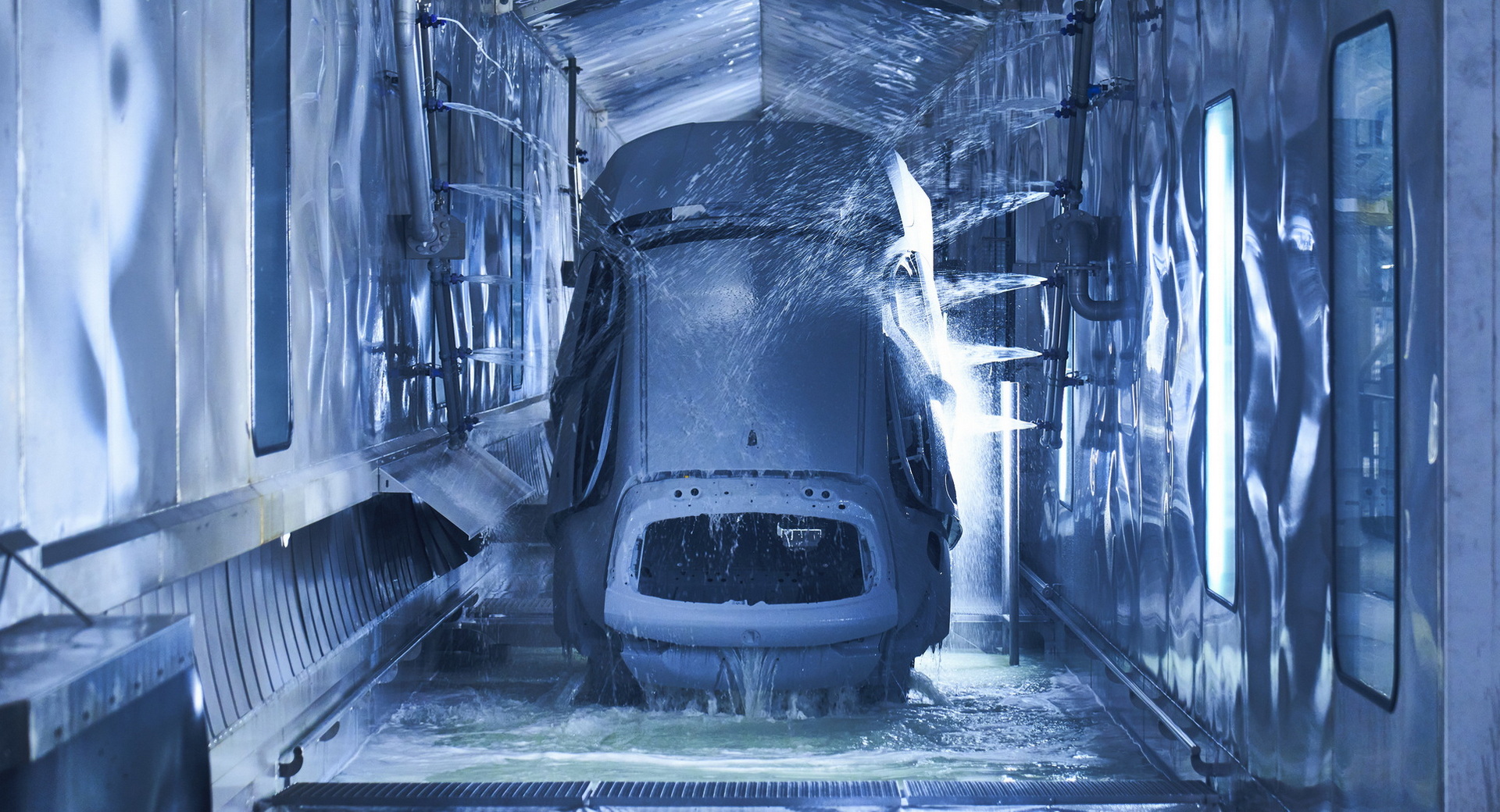BMW is trying to reduce its paint shop’s impact on the environment and will now use paints made of renewable materials such as bio-waste, or waste from sewage treatment plants.
According to BMW, this helps take crude oil out of the production process of paints. Through this and other measures, it expects to save over 15,000 tonnes of CO2 emissions between now and 2030.
“By reducing our use of fossil raw materials, we can conserve natural resources and lower CO2 emissions at the same time,” said Joachim Post, BMW’s head of purchasing and supplier network. “Innovative paints based on renewable raw materials are an important step in this direction.”
Read Also: ABB Shows Off Paintbot That’s So Precise it Can Paint An Art Car In 30 Minutes
The greener paints are being provided by BASF and BMW has become the first automaker to use them at its plants in Europe. Not only are the paints cleaner, they also reduce the carbon used in association with producing, transporting, and processing crude oil.
In addition to these new paints, BMW’s plants in Leipzig and Rosslyn are using sustainably-produced corrosion protection and matte paints. Chemically identical to the ones previously used, they have all of the same properties but the carbon costs related to them are reduced.
Together, these measures help reduce the CO2 emissions from BMW’s paint production by more than 40 percent, the automaker claims.
Just the latest step BMW has taken to make its paint shop greener, it also introduced a new process called EcoPaintJet Pro last year that allows it to paint more precisely. This, too, will help the automaker save 6,000-megawatt-hours of power and to reduce its carbon footprint by 2,000 tonnes per year.




